FRANKENSTEIN (2025)
A brilliant but egotistical scientist brings a creature to life in a monstrous experiment..

A brilliant but egotistical scientist brings a creature to life in a monstrous experiment..

As a lifelong lover of cinema and having seen literally hundreds of films, one reaches a point where it’s rare to see something that completely lives up to your expectations. And it’s even rarer when those expectations are surpassed. But after seeing Guillermo del Toro’s version of Frankenstein, I can confidently say this has to be one of, if not the, cinematic highlights of the year.
The Mexican auteur of all things fantastical and macabre has been creating his own exquisite celluloid creatures for over 30 years, so it should come as no surprise that he’s had Mary Shelley’s ground-breaking 1818 novel on his mind since he was a boy. Apart from H.P Lovecraft’s At the Mountains of Madness, this was his other main passion project that he’s been dreaming of since he first saw Boris Karloff starring in James Whale’s 1931 classic. And thank you, Netflix, for helping him realise this dream, because he’s only gone and made an absolutely stunning adaptation of Shelley’s bonkers book, one I think will prove hard to top.
Like any great adaptation, del Toro makes a few tweaks here and there from the source material; essentially, it’s the same story, but apparently there are some changes that lovers of the book will no doubt cast a critical eye over. I say ‘apparently’, as I’m going to admit I’ve only read the novel once, decades ago, so couldn’t tell you exactly what changes have been made. But as far as I’m concerned, it doesn’t matter; this is a new take on it, and any alterations I noticed were perfectly justifiable, and in no way dishonoured Shelley’s story.
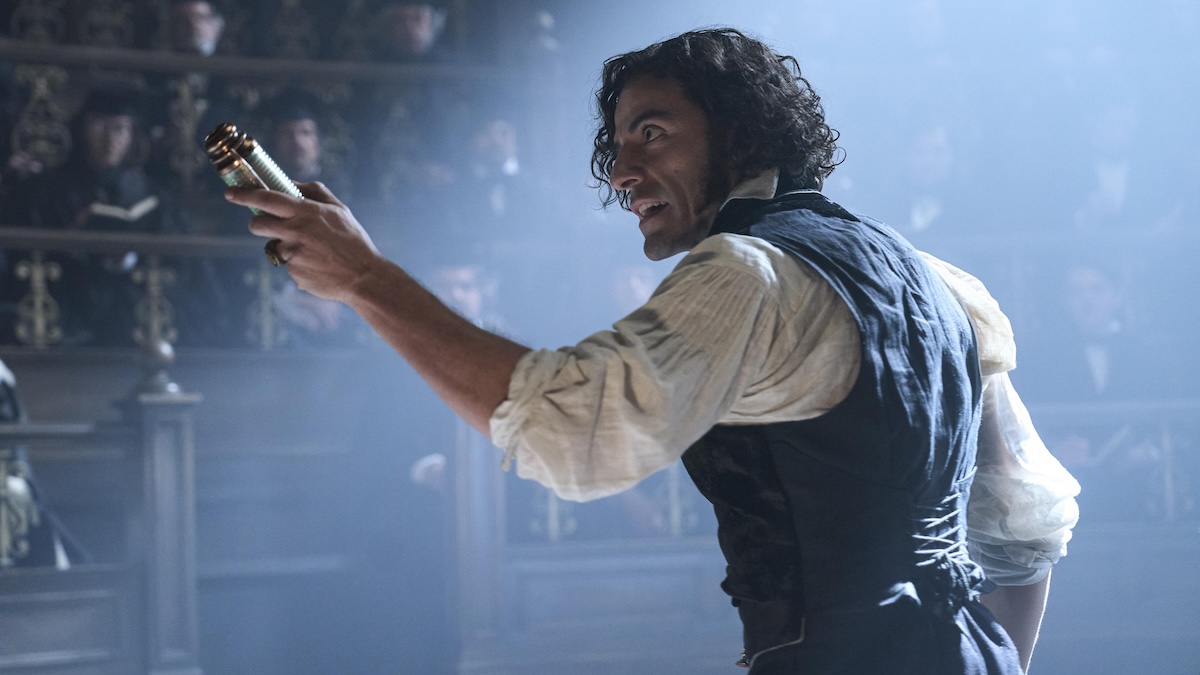
The film begins where the book ends: the barren yet beautiful Arctic, where a ship’s crew discovers a wounded Victor Frankenstein (Oscar Isaac) while being stalked by his raging Creature (Jacob Elordi). They soon head back to the ship, but not before said raging Creature has violently killed several of them. Finally, when the crew and Victor are in the relatively safe confines of the vessel, Frankenstein starts recounting his incredible tale of how he came to be the creator of what’s still lurking out there in the dark shadows.
This opening grabs one’s attention immediately; del Toro’s signature eye-popping production design by long-time collaborator Tamara Deverell is instantly evident, complemented perfectly by regular cinematographer Dan Lausten’s gorgeous visual palette. If you’ve seen del Toro’s The Shape of Water (2017) or Nightmare Alley (2021), you’ll have some idea of what I’m talking about. It may sound like hyperbole, but you could take any frame from Frankenstein and hang it on your wall. It’s that beautiful.
From there, the story flashes back to Victor’s childhood life: a loving mother (Mia Goth), a tyrannical and distant father (Charles Dance), and after Victor’s mother dies in childbirth, an obsession with conquering death takes shape. Cut to an adult Victor at a medical college in Edinburgh where he’s showing off his rather gruesome research that involves the revival of a dead body to a disciplinary panel. All concerned are horrified at what they witness; they say it’s a blasphemous abomination.
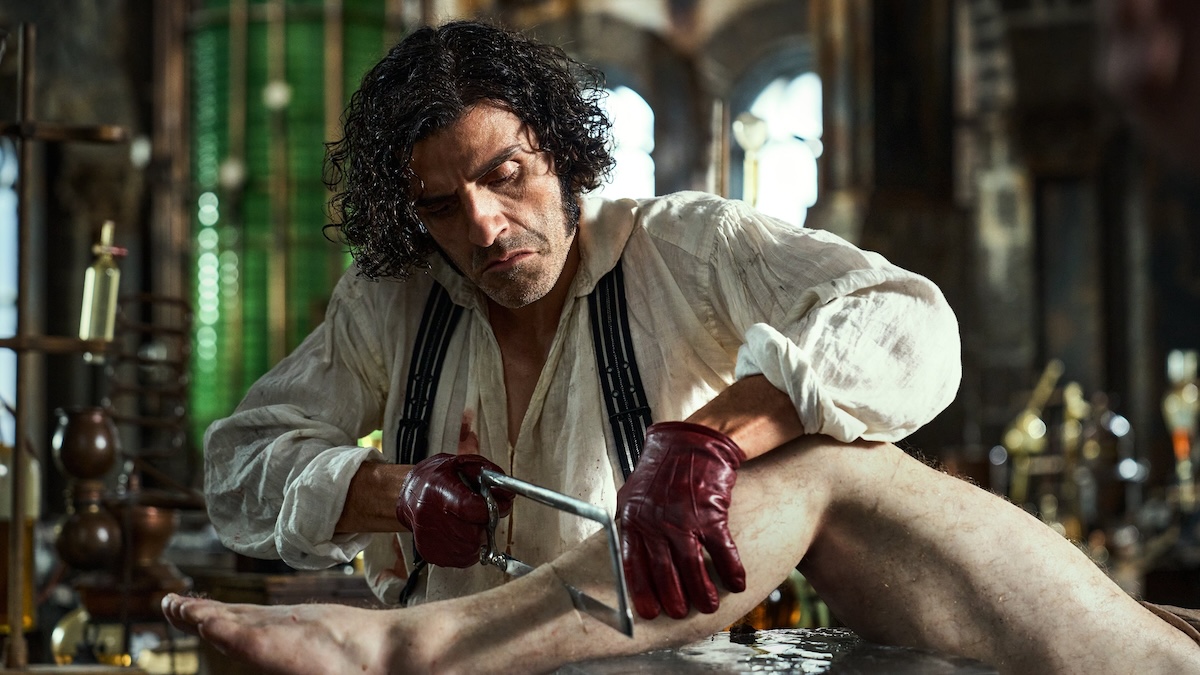
However, there’s one person there who likes what he sees: wealthy munitions manufacturer Heinrich Harlander (Christoph Walz). And luckily for Victor, Harlander happens to be the uncle of Lady Elizabeth (Mia Goth again), who’s engaged to Victor’s younger brother, William (Felix Kammerer), and so Harlander agrees to finance and supply everything the good doctor needs for his resurrection project. But as Victor’s work takes over his life, he finds himself attracted to his brother’s fiancée… and, well, one can probably guess this doesn’t end well later…
As gripping and moving as this first half-hour or so is, the film really kicks into gear when we see Victor start to get creative in his newly built laboratory. After taking his physical parts from hanged criminals and soldiers killed on the war-torn Crimean battlefield, his Creature’s born in a shower of lightning-induced electricity, and what a unique creation it is. In using Elordi’s lithe frame, del Toro’s aesthetic is quite unlike anything you’ve seen before on film. Body parts are fused together in such a way that he almost looks like a sleekly-formed mannequin, and the way he moves has a rough-round-the-edges balletic quality to it.
The director’s interpretation of the Creature is one of the film’s strongest elements. Rather than portraying him as mindlessly violent, this version of the Creature is curious, emotional, and desperate for connection. His first spoken word is “Victor,” which communicates clearly what he wants: recognition from the person who made him. The film makes it clear that the worst thing Victor ever does is not building the Creature, but abandoning him without guidance or compassion. Apart from the new-look design, another new addition that del Toro has introduced is that the Creature seems to have almost supernatural healing powers. Any scar, no matter how severe, heals fast; even getting blown up by dynamite has little effect.
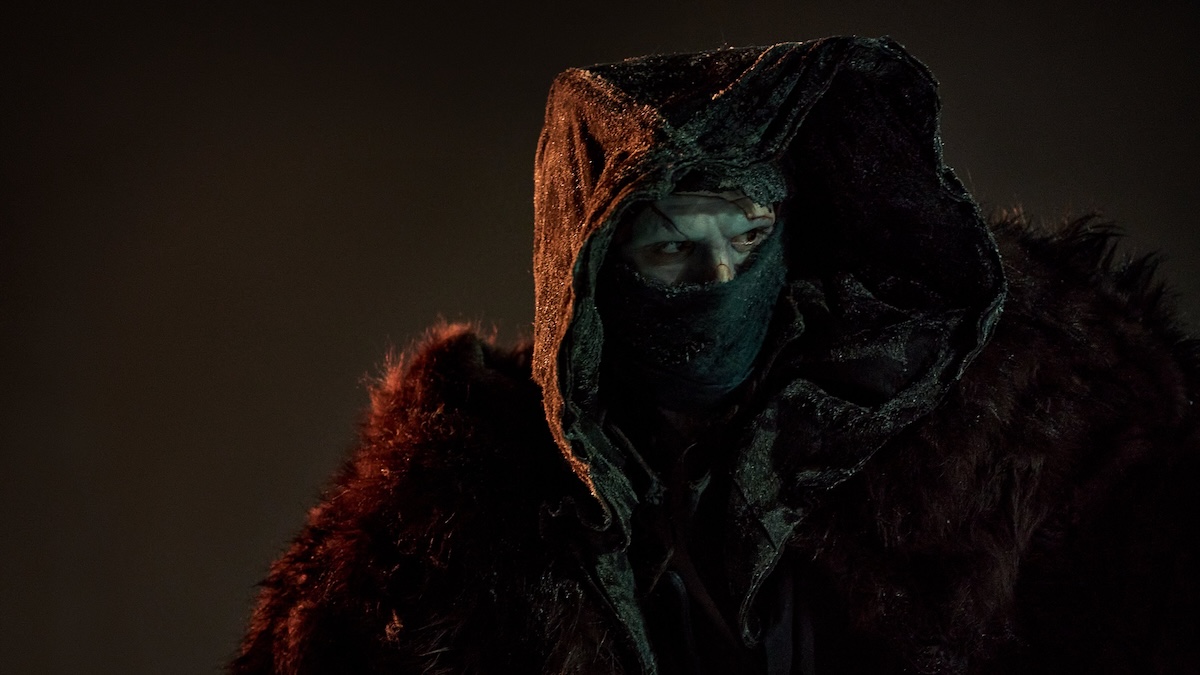
Alongside the new-look artificial man, one of the other main differences that del Toro puts into this version is that the second part of the film comes from the Creature’s perspective. This not only adds a narrative freshness to the film, but it also cleverly injects a layer of emotional depth to the second part of the tale. As he’s cast out and left to his own devices, he stumbles across the family living in the forest, which is where he encounters a blind man (David Bradley) , who befriends him and shows him the Book of Genesis; where the creature realises that, like him, Adam and Eve were also cast out by their Creator. As most people familiar with the story know, the once-happy relationship with the family and the ‘Spirit of the Forest’ doesn’t end well, especially for a pack of wolves that come to a rather violent demise at the hands of the Creature; one of the few scenes in the movie where you see the sheer power of what he’s capable of.
Unlike earlier versions (especially Kenneth Branagh’s over-the-top take from 1994), del Toro’s film feels much more grounded emotionally. At its core, it’s really about responsibility, or the lack of it. Victor brings a new life into the world and then, terrified of what he’s done, tries to pretend it isn’t his problem. His story isn’t just about a scientist with an ego; it’s about fear, denial, and what happens when you walk away from something you created. Meanwhile, the Creature’s just trying to find his place in a world that has no idea how to handle him.
Where Shelley’s original story ends on a bleak note, del Toro takes things in a slightly different direction. After everything they go through, Victor and the Creature finally confront each other honestly. Instead of pushing toward more violence, they acknowledge the pain they’ve caused each other. There’s a sort of forgiveness between them, which isn’t easy, nor tidy, but real. Sure, the full story remains desperately sad, but there’s a kind of spiritual redemption for both characters.
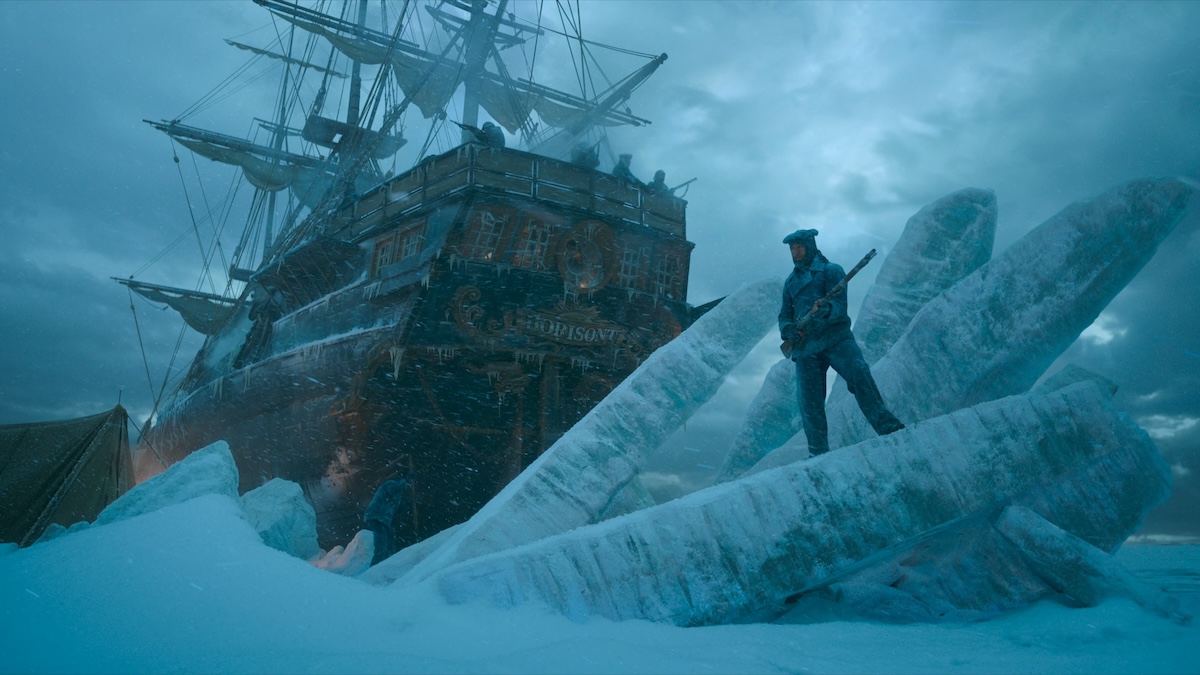
Regarding the performances, everyone is solid, though I’m not sure why Mia Goth (Pearl) was cast in two roles, and her part as Elizabeth seemed a little superficial, but that’s my only real gripe. Oscar Isaac’s take on Victor Frankenstein has more of a manic energy than previous incarnations, but he never resorts to over-the-top, camp theatrical acting, and at the end, despite his neglectful behaviour to his creation, you do feel sympathy for him.
However, the real standout has to be Jacob Elordi (Saltburn). From as soon as the Creature is ‘born’, Elordi brings a child-like quality to his movements and mannerisms that almost jars with his physical self. He’s no lumbering monster in the typical sense (being about as far away as Karloff as one can get), but he’s still tall and imposing. Immediately, you sense the Creature’s pain, fear, vulnerability… then later, his raw animalistic rage, and sadness. Every emotional beat isn’t lost.
Having had a few days to think about it, I’ve only changed my opinion on one thing: initially, I thought the movie ran about 20 minutes too long, but I’ve come around to think otherwise. The slower pacing gives you time to really understand both Victor and the Creature, and to take in the beautifully realised world they live in. And it really is a visually astounding universe that del Toro created here. Even by his own high standards, the filmmaker’s outdone himself with Frankenstein. If you can, watch it at the cinema on limited release, but even if your only option is a smaller screen at home, you’re still in for one hell of a treat. Don’t miss it!
MEXICO • USA | 2025 | 150 MINUTES | 1.85:1 | COLOUR | ENGLISH • DANISH • FRENCH

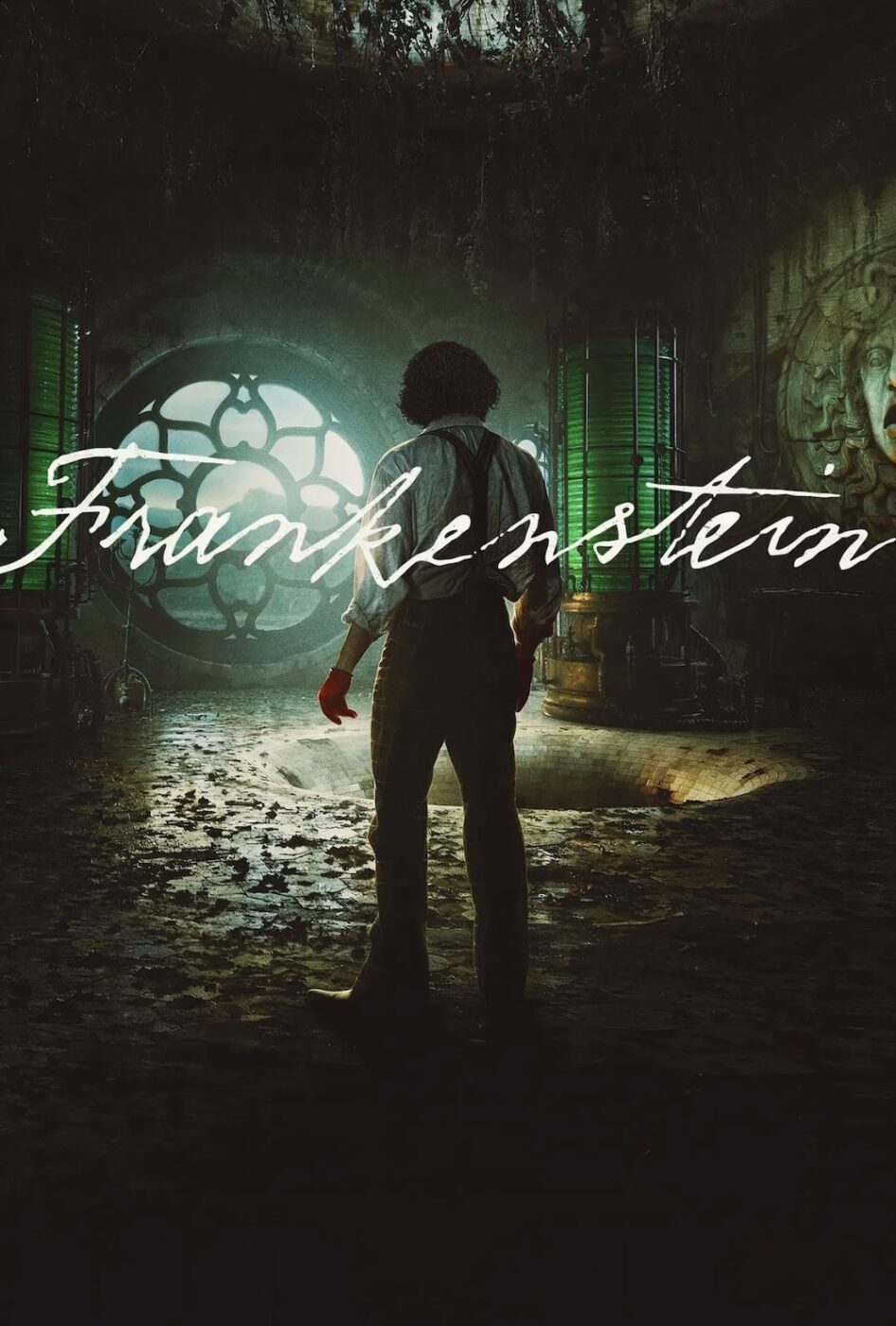
director: Guillermo del Toro.
writer: Guillermo del Toro (based on the novel by Mary Shelley).
starring: Oscar Isaac, Jacob Elordi, Christoph Waltz, Mia Goth, Felix Kammerer, Lars Mikkelsen, David Bradley, Charles Dance, Lauren Collins, Sofia Galasso, Ralph Inneson & Burn Gorman.
